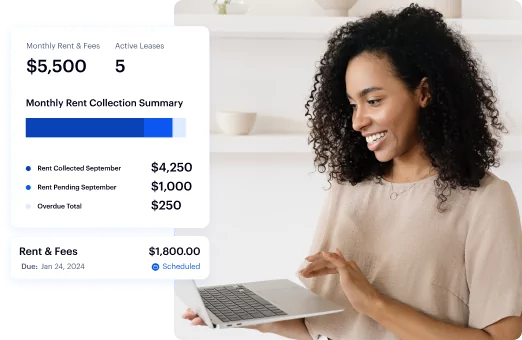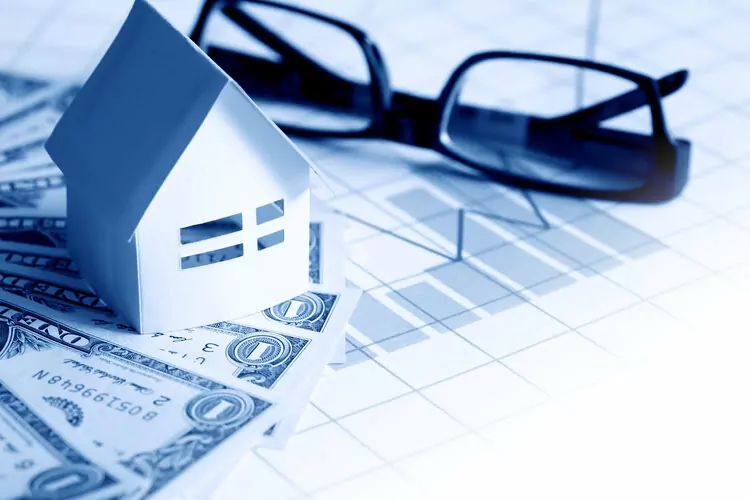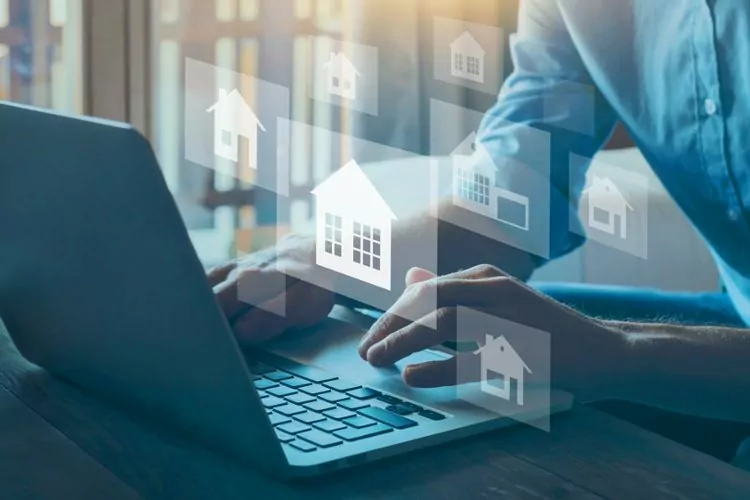Becoming a successful landlord requires more than just owning property. It demands effective management to ensure profitability, tenant satisfaction, and legal compliance. As the real estate landscape evolves into 2025, staying ahead of trends and adopting best practices is essential.
This guide offers actionable tips for landlords, from beginners to experienced multifamily investors and short-term rental hosts.
Key Takeaways
- Implement rigorous tenant screening and clear lease agreements.
- Leverage technology for streamlined rent collection and financial management.
- Prioritize proactive property maintenance and document everything.
- Tailor your management approach to your specific property type and goals.
- Stay informed about legal compliance and market trends in 2025.
Property Management Landscape in 2025
The property management market is experiencing notable growth. Experts predict the global market will increase from $21.75 billion in 2024 to $23.03 billion in 2025. This growth reflects the increasing complexity and professionalization of managing rental assets.
Several factors shape the landscape for landlords in 2025. Key challenges include tenant quality, maintenance efficiency, and operational efficiency. Landlords also face the reality of rising operational costs.
To navigate these costs, many property management companies plan strategic responses. Sixty-three percent of third-party property management companies intend to raise rents or increase resident-paid fees in 2025. Market dynamics also project a rebound in rent growth for 2025. Forty percent of top U.S. markets are forecasted to see annual increases greater than 3%.
The industry is also undergoing a significant “digital revolution.” This involves increased adoption of AI for predictive maintenance, smart building solutions, and tenant experience optimization, according to Resimpli and Precedence Research. Leveraging technology is becoming less of an option and more of a necessity for efficient property management.
Foundational tips for effective property management
Building a strong foundation is crucial for success, regardless of portfolio size or type. These core principles help mitigate risks, improve tenant relations, and streamline operations. Focusing on these areas prepares you for the complexities of managing rentals in 2025.
Master lease agreements and house rules
A well-drafted lease is your primary protection. It should clearly outline the rent amount, due dates, late fees, lease duration, and property rules. Be specific about pet policies, smoking rules, and maintenance responsibilities.
Ensure your lease complies with all local and state housing laws before having tenants sign. Clearly communicating house rules upfront sets expectations and helps prevent misunderstandings.
Implement a rigorous tenant screening process
Thorough screening is vital to finding reliable tenants. It helps avoid potential issues like late payments or property damage before they occur. A comprehensive process typically involves checking criminal records, credit history, bankruptcy filings, and eviction history.
Beyond background checks, verify income and contact previous landlords or references. Using a standardized rental application form ensures you gather consistent information from all applicants. Effective screening is one of the best preventative measures in property management.
Streamline rent collection
Efficient rent collection is fundamental to maintaining positive cash flow. Relying on manual methods like checks can be time-consuming and unreliable. advance rental management often involves moving towards more automated processes.
Collecting rent online saves time and hassle while improving payment consistency. DIY rental property management can be significantly improved by using technology. Many property management spreadsheets are insufficient for tracking payments across multiple properties.
Consider leveraging rental property management software or best landlord app options to automate invoices and reminders. Using best tools for landlords helps tenants pay on time through convenient online portals. This approach reduces the need for manual follow-ups and improves property manager fees by increasing operational efficiency.
Prioritize proactive property maintenance
Regular maintenance prevents small issues from becoming costly repairs. Establish a seasonal maintenance checklist for tasks like gutter cleaning, HVAC checks, and landscaping. Respond promptly to tenant repair requests to ensure safety and tenant satisfaction.
Performing regular inspections helps identify property damage early. Inspections also remind tenants about maintaining the unit and ensuring their safety. Building a network of reliable, vetted vendors is crucial for timely and quality repairs.
Build positive tenant relationships
Clear and consistent communication fosters good tenant relationships. Establish “office hours” or preferred communication methods to manage expectations regarding response times. Address concerns professionally and promptly.
Treating tenants respectfully encourages them to care for the property and comply with lease terms. While being friendly is good, maintaining professional boundaries is also important for long-term success.
Maintain meticulous records and documentation
Good record-keeping is non-negotiable for legal protection and financial clarity. Documenting everything is vital for protecting yourself legally. This includes lease agreements, tenant screening reports, maintenance requests and repairs, payment records, and inspection reports.
Detailed financial records are essential for tracking income and expenses. Accurate documentation simplifies tax preparation and provides a clear picture of your property’s performance. Using software can automate much of this documentation.
Stay compliant with local, state, and federal laws
Navigating the legal landscape is a critical part of property management. Landlord-tenant laws vary significantly by jurisdiction. You must understand and comply with fair housing laws, eviction procedures, and security deposit regulations in your area.
Keeping up-to-date with legal changes is an ongoing process. Consult with legal counsel when necessary to ensure your practices meet current legal standards. Ignorance of the law is not a valid defense.
Property management tips for different landlord types
Property management isn’t one-size-fits-all. Your strategy needs to adapt based on the type and number of properties you manage. Different investment models come with unique challenges and opportunities.
For beginner landlords
Starting out requires learning the fundamentals of property management for small landlords. Focus on understanding the core processes: finding tenants, managing leases, handling maintenance, and collecting rent. Don’t get overwhelmed by complex strategies initially.
Prioritize setting up clear systems from the start for screening and documentation. Use resources and guides to help you navigate the legal requirements in your area. Consider starting with one property to build experience before expanding.
For Airbnb hosts & vacation rental owners
Managing short-term rentals involves a different rhythm than long-term leases. Key tasks include managing dynamic pricing, optimizing online listings, and handling frequent guest turnovers. Guest communication is constant, requiring rapid responses to inquiries and issues.
Cleaning and preparing the unit between guests is a critical and frequent task. You must also manage booking calendars across different platforms. While different from traditional rentals, these properties still require careful financial tracking and guest management.
For Multifamily Investors
Managing multiple units presents challenges related to scale, staffing, and common areas. You might need to hire or manage staff for maintenance or cleaning. Operations become more complex with more tenants and leases to track.
Common area management, such as hallways, laundry rooms, and outdoor spaces, becomes a significant responsibility. Implementing consistent policies and procedures across all units is key to efficiency and fairness. Technology becomes increasingly important for managing communications, maintenance requests, and accounting at scale.
Leveraging technology for property management in 2025
Technology is no longer a luxury but a necessity for efficient property management in 2025. Property management software can significantly reduce administrative burdens. These platforms integrate various tasks, providing a centralized hub for your operations.
Look for software with features like online rent collection, integrated accounting, maintenance tracking, and tenant communication tools. Automated features save time and reduce the risk of errors inherent in manual processes. Some platforms even offer insights into your property’s financial performance.
Emerging tech like AI is beginning to impact property management, potentially aiding in predictive maintenance or optimizing operations. Choosing the right software depends on your specific needs and portfolio size. Consider a platform that offers integrated financial tools.
Platforms like Baselane offer banking features specifically designed for landlords, integrating banking with bookkeeping and rent collection. This can provide a clearer view of your rental property finances.
Using integrated tools helps landlords take back time spent on manual tasks. It can also help you gain clarity and control over your finances. Leveraging such platforms enables you to make smarter decisions and potentially grow your passive income.
When and how to consider hiring a property manager
Deciding whether to self-manage or hire a professional is a significant step. Hiring a property manager can free up your time and leverage their expertise. They handle day-to-day tasks like tenant screening, rent collection, and maintenance coordination.
However, hiring a manager comes with costs, often a percentage of the monthly rent. You relinquish some control over your property and tenant interactions. Evaluate your time constraints, management skills, and portfolio size when making this decision.
For many landlords, especially those managing a few properties or just starting, self-management with the aid of technology might be the preferred approach. Using comprehensive software allows you to retain control while gaining efficiency. It provides a middle ground between full self-management and outsourcing everything.
Bottomline
Effective property management in 2025 demands adaptability, efficiency, and a commitment to best practices. Whether you are a beginner landlord, an Airbnb host, or manage a multifamily portfolio, mastering the core principles of screening, leasing, maintenance, and financials is paramount. Leveraging technology is no longer optional; it is a strategic advantage for streamlining operations and gaining financial clarity.
Integrated platforms that combine banking, rent collection, and bookkeeping offer powerful tools to help you manage your rental properties more effectively. By adopting a proactive approach and utilizing modern solutions, you can navigate the challenges of 2025 and focus on growing your real estate business. Consider how tools like Baselane can help you take back time, gain financial control, and make smarter decisions.
FAQs
Leading challenges include tenant quality, maintenance efficiency, and operational efficiency, as well as coping with rising operational costs. Market conditions also influence rent growth projections.
Technology is crucial, with the industry experiencing a "digital revolution." Property management software helps automate tasks like rent collection and accounting, improving efficiency and providing financial insights.
Many platforms offer accounting and financial reporting features. Some, like Baselane, integrate banking features directly with bookkeeping and rent collection for a comprehensive financial overview tailored to rentals.








